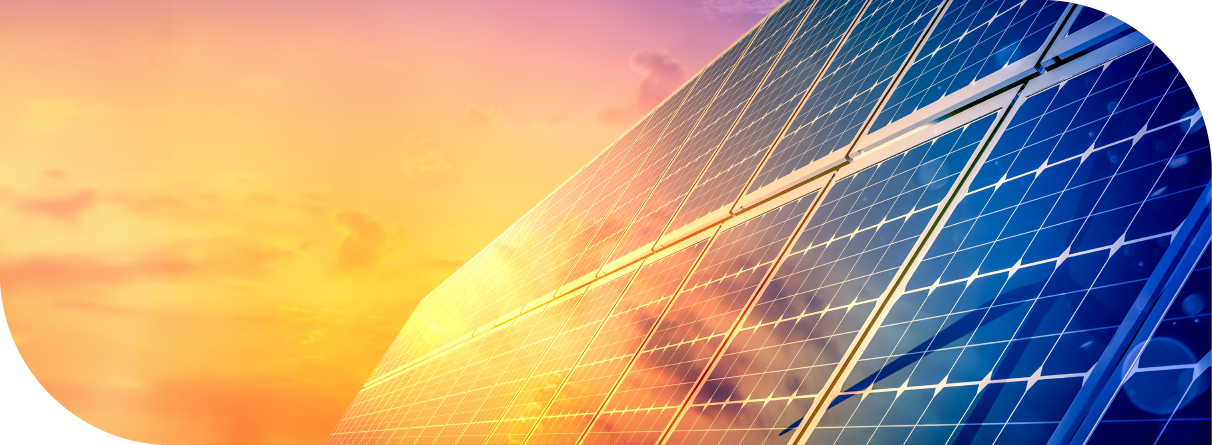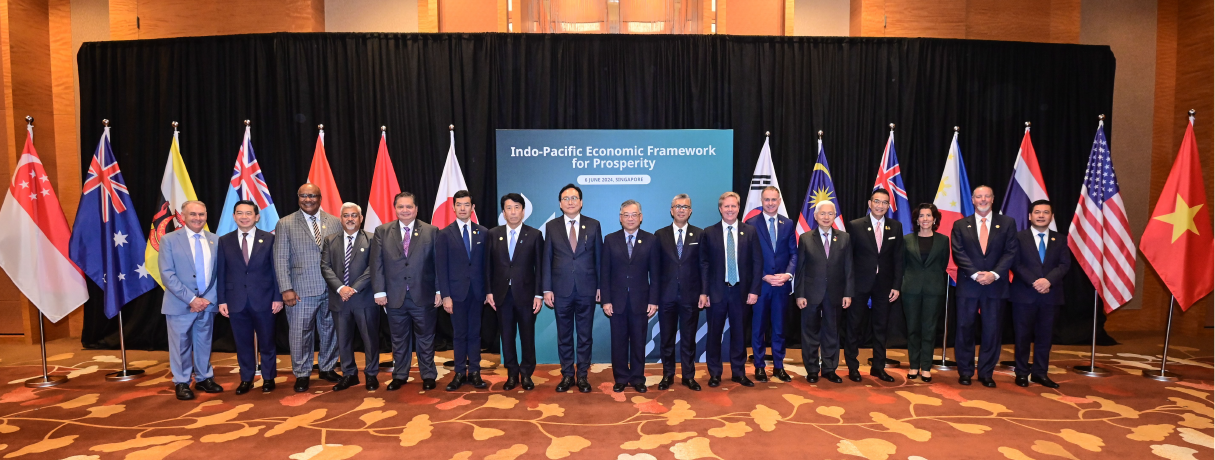Clean Economy Agreement

The Clean Economy Agreement was signed on 6 June 2024, after negotiations were substantially concluded on 14 November 2023.
The Clean Economy Agreement will advance regional cooperation to accelerate deployment of clean energy technology, develop offshore electricity infrastructure for cross-border electricity trade, promote carbon market activities, collaborate on regional and international Carbon Capture, Utilisation and Storage (CCUS) value chains, and promote sustainable transport, amongst others.
The text of the Agreement can be found here.

Benefits of Clean Economy Agreement
A. Cooperative Work Programmes
The Clean Economy Agreement establishes a novel mechanism for IPEF partners
to develop and participate in “Cooperative Work Programmes” (CWPs), which
seeks to advance the objectives of the Agreement. To date, a total of eight
CWPs have been launched.
The first CWP to be announced was the regional hydrogen initiative in May 2023. The scope of cooperation includes exchanges of information and sharing of best practices on methodologies, standards, and certifications on the carbon intensity of hydrogen and its carriers as well as cross-border pilots and demonstration projects. Since its launch, IPEF partners have taken steps to advance the CWP, which includes organising capacity-building initiatives, establishing workstreams related to the scope, and conducting a supply and demand mapping exercise of the current hydrogen supply chains landscape in the region.
The other CWPs are in the areas of:
1) Carbon markets, to identify existing regional carbon market priorities and strategies for improving the enabling conditions for cooperation. A two-day Strategic Dialogue was held in April 2024 which focused on regional capacity building for carbon market implementation.
2) Clean electricity, to facilitate increased decarbonisation and access to clean energy in the region. Participating partners have conducted a mapping exercise and analysis of existing international efforts on clean electricity.
3) Sustainable aviation fuels (SAF), to enhance the availability and affordability of SAF and its feedstocks, so as to catalyse and develop regional SAF value chains in the region.
4) Workforce development, to advance employment creation and strengthen efforts to address employment shifts in the transition towards a clean economy.
5) Emissions intensity accounting, to share information on existing standards, reporting systems and methodologies for the assessment, identification and trade of emerging low emissions products.
6) E-waste urban mining, to facilitate a more sustainable e-waste management system including through information exchange and activities to develop solutions for the efficient recovery of materials.
7) Small modular reactors (SMR)s, to support participating partners that are seeking to advance their understanding of SMRs, and where appropriate, introduce SMRs in their countries under the highest standards of safety, security and safeguards.
B. Financing Initiatives
Two financing initiatives have been announced as part of the Clean Economy Agreement.
The first is a US$1.2 billion Climate Fund comprising US$300 million in public financing from the US International Development Finance Corporation (DFC), matched by another US$900 million in private funding by I Squared Capital, a US private equity firm and global infrastructure investment manager. The Climate Fund will be used to invest in climate change mitigation and adaptation, including impactful and sustainable investments across renewable energy, resource recovery, and digital infrastructure, to reduce the carbon footprint of existing infrastructure in emerging markets.
The second is the IPEF Catalytic Capital Fund to pool resources and expand the pipeline of bankable clean economy infrastructure projects. The fund, established by IPEF partners and administered by the Private Infrastructure Development Group (PIDG), aims to deploy concessional financing, technical assistance, and capacity-building support to projects such as lender due diligence, viability gap funding, and other forms of concessional capital in Official Development Assistance (ODA)-eligible countries. A total of US$33 million of initial funding by Australia, Japan, the Republic of Korea, and the United States is in progress and will be set aside to catalyse up to US$3.3 billion in private investment.
C. Clean Economy Investor Forum
The Clean Economy Agreement includes commitments to mobilise investment and sustainable finance to accelerate the transition to clean economies within the Indo-Pacific region. To this end, IPEF partners agreed to establish an annual Investor Forum to catalyse investment for sustainable infrastructure and climate technology projects in the IPEF economies by matching private sector and institutional investors with opportunities in clean economy-related projects in the region.
Singapore hosted the inaugural IPEF Clean Economy Investor Forum (“Investor
Forum”) on 6 June 2024 at the Sands Expo and Convention Centre. Organised
by the Singapore Ministry of Trade and Industry alongside the 13 other
IPEF partners, the full day, by-invite only event successfully gathered
over 300 participants which includes the region’s top investors, cutting-edge
project proponents, innovative start-up entrepreneurs, Ministers and senior
government officials from the 14 IPEF countries, along with other organisations,
including philanthropies and multilateral development banks, to build connections,
share expertise, exchange ideas, and grow the pipeline of clean technology
and infrastructure investments in the region.
At the Investor Forum, the IPEF partners, in partnership with PwC, identified a total of 69 priority infrastructure projects amounting to over US$23 billion of investment opportunities. Of these, 20 investment-ready projects worth about US$6 billion were presented to investors at the business matching sessions. Remaining projects worth about US$17 billion were also identified as potential investment opportunities.
In addition, 49 climate technology startups seeking up to US$2 billion in new funding were invited to pitch to investors. These were identified by HolonIQ from its shortlist of “Indo-Pacific Climate Tech 100” of top climate technology start-ups based in the Indo-Pacific region.

